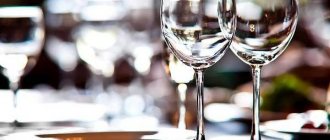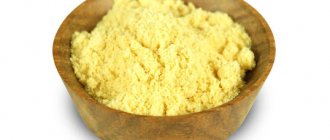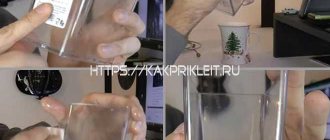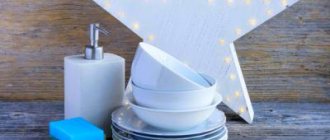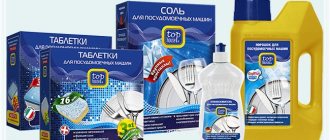Harm of detergents
If you don't wash the dishes thoroughly enough, chemicals may remain on them. They enter the body with food. As a result, some amount of detergent is used regularly. The dosage of aggressive substances is minimal. However, if they enter the body every day, the concentration of harmful components increases. The substances constantly irritate the mucous membranes of the gastrointestinal tract. As a result, erosive processes may develop in the stomach and intestines. Other harm caused by dishwashing detergents:
- allergies: if aggressive components enter the body in any dosage, they can cause a negative reaction in the form of rash, itching, redness, swelling;
- disruption of the respiratory system;
- diseases of the genital organs, which affect the reproductive system;
- decreased immunity, as a result, the body’s resistance to harmful microorganisms decreases;
- skin diseases, the most common is dermatitis, which is caused by regular contact with detergents.
In addition, chemicals tend to accumulate in the body. This leads to the development of chronic diseases, the cause of which is sometimes difficult to determine. Products containing chemicals end up in water and soil, thereby polluting the environment and harming the environment.
Facts about the composition of household chemicals
We wash dishes more than once a day, especially for large families. Not surprisingly, most of them use store-bought chemical-based detergents. Let's take a look at the label and read the ingredients. Most of the products contain surfactants, all kinds of fragrances and equally harmful synthetic components.
Important! It is strictly forbidden to use it in its pure form for washing dishes, because the surface of even the smoothest and highest-quality plate is far from ideal, but consists of a mass of scars into which the powder will sink, and as a result, it will end up in your stomach. However, rarely does anyone dilute the concentrate in practice and follow the manufacturer’s instructions for use. Usually we generously pour chemicals directly onto pots, plates or, in extreme cases, onto a sponge. As a result, we use household chemicals in larger quantities than is actually required. And then we ask ourselves why we get sick so often, where does this strange allergy come from?
But who would simply refuse cheap, effective and quickly foaming products? This can be done if you find alternative means that can be used to wash dishes without chemicals.
How to wash dishes without chemicals
If for various reasons you do not plan to use dishwashing liquid, alternative methods are considered. You can choose several available means: soda, vinegar, ash, soap, mustard. Such substances clean surfaces of dirt to varying degrees, which is why they are often used at home. Washing chemical dishes, as well as household cutlery, plates and pots, is also done with these products. In this case, no film of aggressive substances remains on the surface.
Mustard
Washing dishes with mustard powder is done in several ways:
- A dry substance is used: poured into a container, then a moistened sponge is immersed in the powder and the dishes are treated.
- Prepare dishwashing detergent from mustard. Prepare 2 tbsp. l. powder and 2 liters of water. The mixture is used to soak dishes, for example, if there are dried stains on them. In addition, this method is suitable for cases when you need to wash a lot of plates, pots, and cutlery.
- If dishes have accumulated in the sink, they need to be sprinkled with powder. Then sprinkle with water. As a result, a mush is formed because the mustard becomes moist. You need to leave the dishes to soak. After some time, it is cleaned without detergents, using only mustard pulp.
This substance degreases surfaces. If you use baking soda correctly, you can remove stains of varying complexity. Moreover, the powder belongs to the group of abrasives. Baking soda for washing dishes is used in the classic way: make a paste from powder and water. The components are taken in arbitrary quantities, and you need to be guided by the consistency of the product. Then the contaminants are removed. This method is suitable for cleaning plates, kettles, frying pans, pots and other items.
Laundry soap
Soap is dissolved in water and then used to remove dirt. Moreover, you need to use soap foam. You can grind the soap, then it will dissolve faster in the liquid. There is another option - soap and soda solution for washing dishes. The components are taken in random order. At the same time, the effectiveness of the product increases, which is due to the abrasive properties of soda.
The disadvantage of this method is the need to prepare a fresh solution each time. However, for cleaning large quantities of dishes, this is the most suitable option. It must be remembered that washing dishes with laundry soap requires more thorough rinsing. This is due to the fact that soap also forms a film on surfaces. It must be washed off thoroughly.
To remove burnt food, fill the container with soapy water. The product is heated, and after boiling, removed from the stove. As a result, the carbon will soften. It is easier to remove it after such manipulations.
This option is suitable for removing dirt from dishes in a private home. It is not recommended to specifically burn garbage; plastic and other fusible materials can release toxic substances when burned. Ash is sprinkled on the dishes. To clean dirt faster, the powder is sprinkled with water. You can immediately treat plates and pots using a sponge or hard washcloth.
Vinegar
Washing dishes without detergents can also be done with this substance. Its disadvantage is its intense odor. Plates must be rinsed thoroughly. An alternative option is to add lemon peels to the substance. You need to leave the product for 2 weeks. When the smell disappears, use a folk remedy for washing dishes. To do this, you need to dilute it with water in a ratio of 1:2.
To remove dirt inside the kettle, pour vinegar. The product is left for 12 hours or overnight. There is no need to boil it. In the morning the liquid is poured out, the kettle will be clean. It is important to rinse it thoroughly.
Soda Ash
This is an aggressive product, so it is used only to remove complex stains. Moreover, it is not used to clean dishes. Soda ash is used to restore the properties of pans. Prepare a soda solution: add 80 g of silicate glue and 100 g of soda ash to a full basin of water (10 l).
Large items (pans and pots) are immersed in a container. Then put on the stove and bring to a boil. After half an hour, remove the container from the heat, cool and clean all surfaces with a brush. If you periodically use this product, all items in the kitchen will shine, plaque, fat deposits, and carbon stains will disappear from them. After cleaning, rinse the containers thoroughly. It is advisable to soak them for 12-24 hours. The water should be changed several times.
How to wash floors
The choice of detergents for cleaning floors is quite extensive.
Professional products
The most effective means include the following:
- "Sarma". When using it, you need to work with rubber gloves. Cleans, disinfects, kills unpleasant odors. Mix 40 ml of the product with 5 liters of water, take 60 ml for disinfection.
- Liquid product "Grass Arena" with a polishing effect. Suitable for all floor coverings, especially laminate and parquet. There is no chlorine in the composition, the product does not leave streaks.
- Composition “Ecover” with linseed oil. The product is safe and non-toxic due to the absence of chlorine. Can be used to clean all surfaces.
- "Glorix" It is characterized by a safe composition, is inexpensive, and is suitable for any coating.
- Gel "Vaily". There is no chlorine in the composition, the product cleanses even old stains.
Folk remedies for cleaning floors
Folk remedies will help cope with various types of pollution. But before use, it is important to test them in an inconspicuous area to avoid damaging the coating.
Vinegar
Vinegar disinfects and removes various stains. Based on it, you can make various floor cleaning compositions:
- Polish for laminate and linoleum. To prepare it, 5 liters of water are diluted with 5-6 tablespoons. vinegar.
- Floor cleaner. Mix water and vinegar in a 1:1 ratio and wipe the floor, which will remove odor and heavy dirt.
Laundry soap
To wash the floor, take a bucket of water, add a little grated laundry soap, and wash the coating with the product. Finally, you need to walk over the surface with a cloth moistened with clean water to avoid streaks. This composition will remove odors, add shine to coatings, and disinfect the floor.
Inventory: which rag or mop is better to choose
To simplify the process of cleaning the floor, you need special equipment:
- Mops. The most common is a mop with a MOP attachment, which makes it easy to clean large areas. The only drawback is that it is difficult to remove corners with its help. For such areas, it is better to choose a rope mop. When choosing a product, you should pay attention to the length of the handle - it should reach the armpits.
- Rag. Allows you to clean corners, baseboards, and areas around furniture legs. It is better to choose a rag made of polyamide: the fabric absorbs moisture and is resistant to mold. You can take an old terry towel, cut it, put the rag on the mop: it washes easily and does not leave damage on the surface.
- Brush. To remove dried-on stains and marks, you need a brush with stiff bristles. Such tools should not be used on linoleum or parquet to avoid leaving scratches.
Many people purchase steam cleaners for cleaning floors. They are expensive, but have many advantages. The equipment effectively removes dirt and destroys microbes. Suitable for any floor covering except parquet.
Cleanliness without harm: how to prepare dishwashing detergents yourself
Do-it-yourself dishwashing liquid - recipes
On television screens, dishwashing liquids are promoted no less than political leaders and artists. But everyone knows that store-bought chemicals are unsafe; they cannot always be completely washed off both from plates and from the skin of the hands. Chemical products are especially unacceptable for allergy sufferers and families with small children.
Natural, environmentally friendly compounds are also available in abundance, but their disadvantage is their excessively high cost. So why not use the good old time-tested folk wisdom? Let's study recipes for homemade dishwashing detergents.
General information
So, homemade dishwashing detergents have the following advantages:
- Safe, environmentally friendly, do not harm the health of people, pets and the environment.
- They do not have a negative effect on the skin of housewives’ hands.
- They do not contain active allergenic substances and are not able to accumulate in internal organs.
- Very affordable in terms of costs.
- They are easily and quickly washed off with water, which means the counter will not spin so quickly.
In contrast, here are the possible disadvantages of homemade dishwashing detergents:
- In advanced cases with particularly contaminated household items, they may not be as effective as store-bought counterparts.
- Homemade dishwashing detergent usually runs out faster.
Moments to remember
Keeping your home free of harsh chemicals and irritants adds to your overall health and happiness. They are also economical! With so many chemicals surrounding us every day, at least you can take control of your home by using these natural cleaning alternatives.
If you want to clean with natural DIY cleaning products, you can use cleaning recipes with simple ingredients like baking soda, vinegar, washing soda, essential oils, and citric acid-rich fruits.
Gradually switch to using cleaning products with all-natural ingredients. Start with one recipe and see how it works for you.
If you are concerned about previous or ongoing exposure to chemicals from cleaning products or other sources, consider our Chemicals and Heavy Metals Cleanup Program.
Details
Universal gel paste
To prepare it you will need:
- 1/2 piece of laundry soap;
- 1 liter of hot water;
- 3 tablespoons of soda;
- 3 tablespoons dry mustard powder;
- 4 tablespoons of ammonia;
- fine grater;
- small saucepan;
- glass jar with lid.
- Rub a dry piece of soap on a fine grater;
- In a pan of hot water, these soap shavings must be completely dissolved;
- When the soap solution has cooled, pour mustard powder into it and stir thoroughly;
- Add the last ingredient - ammonia, stir, pour into a glass jar, close the lid. Before first use, the composition must sit for at least 2 hours.
This mixture will effectively wash not only dishes, but also tiles, sinks, and countertops. If the stains do not respond immediately, you can apply the product to them, let it work for a quarter of an hour and wash off the surface with a wet cloth or sponge.
Ammonia is a rather aggressive agent; when working with it, you need to open the windows or turn on the hood in the kitchen.
Soap and soda mousse
- ½ cup finely grated soap (laundry or any other);
- 1 glass of boiling water;
- 1/4 pack of soda;
- essential oil with a pleasant aroma.
- Beat soap shavings in boiling water with a mixer or blender until foam is obtained;
- Let the mixture cool slightly and gradually add baking soda;
- Mix everything thoroughly and add 10 drops of essential oil;
- Beat until it forms a mousse;
- Transfer to a convenient sealable container.
The resulting mousse will harden noticeably over time. It will do a great job of removing yellow stains on the surface of bathtubs, tiles, sinks and toilets.
Glycerin cleaning gel
In addition to its cleansing properties, this product will also soften the skin of your hands and is absolutely safe even when used for children’s first dishes. With this composition, you can begin to teach your mother’s more senior assistant how to wash dishes.
- 2 tablespoons of finely grated dark laundry soap;
- 1 liter of raw water;
- 8 tablespoons of glycerin.
- Using a water bath or in a microwave, completely dissolve the soap shavings in 1 glass of very hot water.
- Gradually dilute the mixture with the remaining water.
- Stir glycerin into the resulting gel.
- Place the mixture into a pump bottle
- Add a drop of your favorite essential oil.
Anti-fat product
To make it you will need:
- baking soda;
- hydrogen peroxide;
- boiling water
How to prepare the product:
- Pour 170 ml of boiling water into a bowl and add 2 tablespoons of soda;
- Pour in 2 tablespoons of hydrogen peroxide;
- Pour the prepared mixture into a convenient sealable container.
Peroxide in this recipe can be replaced with table vinegar.
The resulting product should be applied to the greasy surface of the dish or stove, if necessary, hold for several minutes and rinse with warm water.
Detergents based on lemon juice are very popular and effective.
A fresh layer of scale in a kettle is removed using this: lemon juice from half a fruit is poured into a filled kettle and boiled. And then they let it work for another 3 hours.
Dirt from kitchen utensils can be easily wiped off using a mixture of lemon juice and soda. One of the advantages of formulations that include lemon juice is that they help eliminate the ingrained smell of fish or garlic, etc.
Lemon gel
Ingredients required for cooking:
- Juice of half one lemon;
- Finely grated laundry soap (half of one standard piece);
- 25 g glycerin;
- 1 teaspoon of vodka or medical alcohol.
- Pour soap shavings into a glass of very hot water and beat with a blender or mixer until the soap is completely dissolved and forms a dense foam.
- Gradually add lemon juice, glycerin and vodka.
- Let the mixture cool and you can use it
For glass
And washing glassware or window panes is effective using the following lemon product.
What you need to take:
- 1 glass of unboiled water;
- 1 tablespoon freshly squeezed lemon juice;
- ½ cup table vinegar.
- Small container with sprayer
- Pour water at room temperature, lemon juice, and table vinegar into one bowl.
- Mix thoroughly and pour into a stationary container with a spray bottle
Mustard in the fight for purity
Using dry mustard powder, you can even get rid of old traces of fat.
I option. For the first remedy, take:
- 2 tablespoons mustard powder;
- 1 liter of hot water.
- The water needs to be heated well, almost bringing it to a boil;
- Pour mustard into hot water;
- Mix well until a thick foam forms.
Lemon juice
Sour juice with a pleasant citrus smell is an excellent natural stain remover and bleach. Unlike store-bought analogues, it does not fade color and does not deform surfaces. Lemon juice will not only clean the house, but will also keep residents cheerful and energetic thanks to essential oils.
The following composition will help remove stains from carpet or carpet:
- vinegar;
- pure sparkling water;
- liquid soap;
- lemon juice.
Mix the ingredients in a plastic bottle and shake it thoroughly. Before use, be sure to cover your hands with gloves, otherwise your skin will suffer. Screw the spray bottle to the neck of the bottle. Apply the mixture to the stain and thoroughly wipe the area with a sponge. Even stubborn stains are eliminated.
How to make your own dish detergent?
Manufacturers of household chemicals offer a huge selection of different products. But for washing dishes, many people deliberately choose “chemical-free” products. There are many reasons for this, for example, that particles of an industrial product can enter the body or cause allergies.
There are a lot of recipes on how to make gel, paste or dishwashing liquid at home. You can prepare them from available ingredients that can be found in every kitchen.
Is it possible to wash dishes with laundry soap?
It is allowed to use laundry soap to wash dishes. It contains only natural ingredients - vegetable oils, fatty acids, sodium salts. At the same time, there are no harmful phosphates and surfactants in it. Laundry soap effectively breaks down fats due to its high alkali content and has a bactericidal effect.
Moreover, for dishes it is preferable to use a classic brown bar 72%; white may contain dyes, fragrances and preservatives. It is also undesirable to use liquid soap called “Laundry” for washing dishes and pots; it is better to prepare the product yourself.
Attention! Laundry soap dries the skin of your hands very much, so you need to use them only with gloves.
Natural remedies
Homemade dish cleaning products will help get rid of any biological contaminants. In this case, washing it will be completely safe and environmentally friendly.
Laundry soap
There are many home remedies for washing dirty dishes. The main ingredient of many of them is laundry soap, which is used in combination with various components.
You can make dishwashing gel from laundry soap. The simplest recipe:
- Crumble ¼ piece of dark soap through a grater.
- Place the shavings in a bowl and place them in a water bath.
- Add 110 ml of water and melt the crumbs.
- Pour glycerin (5 tbsp) into the composition so that it does not dry out your hands.
The product will be liquid for some time, but as it cools it will thicken, taking on a gel-like consistency. To improve the smell, you can add a few drops of any ether.
There is another recipe that requires more ingredients:
- Crumble the soap (half a bar) in any convenient way.
- Heat water (1 liter) and dissolve the dough in it.
- Let it cool. Add soda and mustard powder (3 tablespoons of each component), mix until smooth.
- Add ammonia (4 tablespoons) and pour into a glass jar with a lid.
You can use the homemade product after 2 hours.
Advice! It is best to pour in ammonia and package the composition outdoors.
Paste
The concentrated paste will not only help wash away grease in cold water, but will also rid dishes of plaque and burning. The cooking recipe is as follows:
- Pour a crumb of laundry soap (20 g) with water (210 ml) in a suitable container and place on the stove.
- Let the crumbs dissolve completely. The mixture should not boil. Then pour another 1000 ml of slightly warmed water into it.
- When the solution has cooled, add soda ash and mustard (3 tablespoons each).
- Stir until smooth and add a few drops of essential oil for aromatization.
To keep the paste from drying out, any jar with a tight-fitting lid is suitable. Shelf life – 14 days.
Attention! You need to wear gloves when using the paste, as it greatly dries out the skin on your hands.
Souffle
You can also make your own homemade souffle cleanser. Preparation method:
- Pour soap crumbs (1/2 cup) into boiling water (210 ml).
- Stir and beat with a blender until high foam.
- When the mixture has cooled a little, add soda to it (1/4 of the pack).
- Mix again and immediately pour in any essential oil.
- Then beat the mixture again until it becomes fluffy.
The finished soufflé is kept in a plastic container under a tight lid. After cooling, the product becomes dense, and for washing it is convenient to dose it with a teaspoon.
If desired, you can use baking soda to wash dishes. In 1 liter of warm water you need to stir 1 tbsp. l. powder and use the resulting solution for its intended purpose.
Soda + peroxide
To make this detergent, the simplest ingredients that can be found in every home are suitable. This is baking soda and hydrogen peroxide.
- Pour 2.5 tbsp into boiling water (175 ml). l. soda, stir.
- Add hydrogen peroxide (2.5 tbsp) to the composition.
- Pour the solution into a glass bottle with a cap.
Peroxide can be replaced with the same volume of 9% table vinegar.
Apply the finished composition to oily surfaces and wait a few minutes. Then the dishes must be rinsed under warm running water.
Mustard powder
Dirty, greasy dishes can be washed with dry mustard powder, but for more convenient use, dilution with water is allowed:
- Heat water (1 l) until warm.
- Stir mustard powder (2 tbsp) in it until foaming.
The product is ready for use. It copes well with grease on plates and helps other contaminants completely dissolve.
If you don’t like the liquid format of the detergent, you can make a thicker version:
Mustard
This popular seasoning not only makes the dish original, but can also help in everyday life.
You can prepare dishwashing gel from mustard as follows:
- Bring 1 liter of water to a boil.
- Without removing the pan from the heat, add 2 tbsp. l. mustard powder, constantly stirring the mixture with a spoon.
- Pour into another container and cool.
Application: dip a sponge in the resulting solution, rub the dishes with it, and then wash it with warm water. Suitable for washing dishes with any type of coating.
You can also simply pour mustard onto a sponge, rub the dishes, and then rinse with water.
